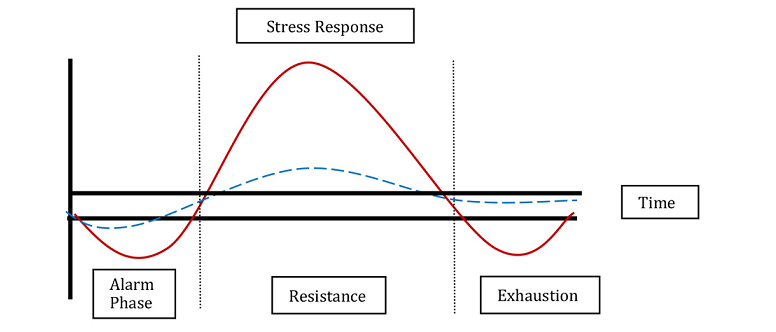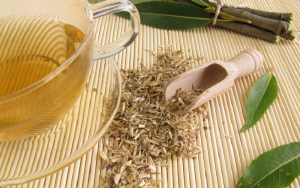
Adaptogens are nature’s stress-relief superstars. These powerful plants have been used for centuries in traditional medicine to help the body resist various types of stress, both physical and emotional. In today’s hectic world, stress has become an unavoidable part of our lives, affecting our mental and physical well-being. Thankfully, adaptogens offer a natural way to support our bodies in managing stress and maintaining balance.
Contents
Introduction to Adaptogens
Adaptogens are a unique class of plants that have been revered for their ability to support the body’s natural resilience to stress. They have been used in various traditional medicinal systems around the world for thousands of years, and modern research is now validating their potential benefits.
Definition of Adaptogens
Adaptogens are natural substances, primarily derived from plants, that help the body adapt to stress and maintain a state of balance. They work by modulating the body’s stress response, supporting the adrenal glands, and promoting overall well-being. Unlike stimulants or sedatives, adaptogens have a normalizing effect, helping to bring the body back to its optimal state without causing dependency or side effects [1].
Historical Usage and Importance
The use of adaptogenic herbs can be traced back to ancient cultures, including Traditional Chinese Medicine (TCM) and Ayurveda, the traditional Indian system of medicine. These healing systems recognized the importance of adaptogens in promoting vitality, longevity, and overall wellness. In the mid-20th century, the term “adaptogen” was coined by Russian scientist Dr. Nikolai Lazarev, who conducted extensive research on these plants and their effects on the human body.
Benefits of Adaptogens for Stress Relief
Adaptogens offer a range of benefits for stress relief and overall health. By supporting the body’s ability to adapt to stress, they help to:
- Balance the stress response: Adaptogens help regulate the production of stress hormones, like cortisol, preventing excessive release and promoting balance in the body.
- Boost mental performance: They can enhance cognitive function, focus, and memory, which often suffer under stress.
- Improve physical endurance: Adaptogens have been shown to increase stamina and energy levels, helping the body perform better under stress.
- Strengthen the immune system: By supporting adrenal function, adaptogens can help to bolster the immune system, making it more resilient to stress-related illnesses.
- Promote overall well-being: Adaptogens can improve mood, support better sleep, and enhance overall well-being, making them an essential tool for managing stress in today’s fast-paced world.

Understanding Stress and Its Impact on Health
Stress is an inevitable part of modern life, and while it can be beneficial in small doses, chronic stress can have a significant impact on our health.
The Stress Response
The stress response is the body’s natural reaction to perceived threats, whether they are physical or emotional. It involves a complex interplay of hormones and physiological processes designed to help us cope with challenges [2]. Understanding the different aspects of this response can help us appreciate how adaptogens support our bodies during times of stress.
The Fight or Flight Response
When we encounter a stressful situation, our body activates the fight or flight response, which prepares us to either confront the threat or escape from it. This response involves the release of stress hormones like adrenaline and cortisol, which increase heart rate, blood pressure, and blood sugar levels, providing a temporary boost of energy.
The Long-Term Effects of Stress
While the fight or flight response is essential for our survival, chronic activation of this response can be harmful to our health. When we are constantly exposed to stress, our body’s ability to return to a balanced state becomes compromised, leading to a state of chronic stress. This prolonged exposure to stress hormones can have various negative effects on our health.
How Stress Affects Physical and Mental Health
Chronic stress can take a significant toll on our overall well-being. Some of the ways in which stress negatively impacts our health include:
- Weakening the immune system: Prolonged stress can suppress the immune system, making us more susceptible to infections and illnesses.
- Impairing cognitive function: Chronic stress can affect memory, focus, and decision-making abilities, leading to a decline in cognitive performance.
- Affecting mental health: Long-term stress can contribute to the development of mental health disorders, such as anxiety, depression, and burnout.
- Increasing the risk of chronic diseases: Ongoing stress has been linked to an increased risk of developing conditions like heart disease, diabetes, and obesity.
- Disrupting sleep: Stress can interfere with our ability to fall asleep and stay asleep, leading to poor sleep quality and further exacerbating stress-related health issues.
Top Adaptogenic Herbs for Stress Relief
There are numerous adaptogenic herbs with unique properties and benefits that can support stress relief and overall health [3]. In this section, we will explore five of the most popular adaptogens, their traditional uses, benefits, and how to incorporate them into your daily routine.
Ashwagandha
Ashwagandha, also known as Indian ginseng or Withania somnifera, is a powerful adaptogen with a long history of use in Ayurvedic medicine.
Origins and Traditional Uses
Native to India and North Africa, Ashwagandha has been used for over 3,000 years to promote vitality, strength, and overall well-being. It is often referred to as a “rasayana,” a rejuvenating herb that helps the body maintain balance and resist stress.
Benefits for Stress Relief and Overall Health
Ashwagandha has been shown to reduce cortisol levels, improve resistance to stress, and support healthy adrenal function. It also has potential benefits for:
- Reducing anxiety and depression: Ashwagandha has been found to have anxiolytic and antidepressant properties, making it useful for those experiencing stress-related mental health issues.
- Enhancing cognitive function: Studies have shown that ashwagandha may help improve memory, attention, and cognitive performance.
- Supporting immune function: Ashwagandha has immune-modulating effects that can help strengthen the immune system and increase resilience to stress-related illnesses.
Dosage and Forms
Ashwagandha is available in various forms, including capsules, powders, and tinctures. Typical dosages range from 300 to 500 mg of standardized extract daily, but it is essential to consult with a healthcare professional before starting any supplement regimen.
Rhodiola Rosea
Rhodiola Rosea, also known as golden root or Arctic root, is an adaptogenic herb native to the cold, mountainous regions of Europe and Asia.
Origins and Traditional Uses
Rhodiola has a long history of use in traditional medicine, particularly in Russia and Scandinavia, where it was used to increase endurance, boost mental performance, and combat fatigue.
Benefits for Stress Relief and Overall Health
Rhodiola Rosea has been shown to help the body adapt to various types of stress and has potential benefits for:
- Reducing mental fatigue: Studies have found that Rhodiola can improve mental performance and reduce fatigue under stressful conditions.
- Supporting mood: Rhodiola has been shown to have mood-enhancing effects, making it a helpful supplement for those experiencing stress-related mood disorders.
- Boosting physical endurance: Rhodiola may help increase stamina and energy levels, enabling the body to perform better under stress.
Dosage and Forms
Rhodiola Rosea supplements are available in capsules, tablets, and tinctures. Recommended dosages typically range from 100 to 600 mg daily, but it is crucial to follow the instructions on the product label or consult with a healthcare professional.

Holy Basil (Tulsi)
Holy Basil, also known as Tulsi or Ocimum sanctum, is an adaptogenic herb native to India and revered for its stress-relieving properties [4].
Origins and Traditional Uses
Holy Basil has been used for centuries in Ayurveda to promote longevity and overall wellness. It is considered a sacred plant in Hinduism and is often grown in temples and homes for its spiritual and healing properties.
Benefits for Stress Relief and Overall Health
Holy Basil has been shown to help the body cope with stress and has potential benefits for:
- Reducing anxiety: Studies have found that Holy Basil has anxiolytic effects, making it useful for those experiencing stress-related anxiety.
- Balancing cortisol levels: Holy Basil can help regulate cortisol production, preventing excessive stress hormone release and promoting balance in the body.
- Supporting immune function: Holy Basil has immune-modulating properties, which can help strengthen the immune system and increase resilience to stress-related illnesses.
Dosage and Forms
Holy Basil supplements are available in various forms, including capsules, tea, and tinctures. Recommended dosages typically range from 300 to 2,000 mg daily, but it is essential to follow the product label’s instructions or consult with a healthcare professional.
Schisandra
Schisandra, also known as Schisandra chinensis or five-flavor berry, is a potent adaptogenic herb native to East Asia.
Origins and Traditional Uses
Schisandra has been used for centuries in Traditional Chinese Medicine to promote vitality, longevity, and overall wellness. It is considered one of the 50 fundamental herbs in TCM and is prized for its ability to balance various body functions.
Benefits for Stress Relief and Overall Health
Schisandra has been shown to support the body’s resistance to stress and has potential benefits for:
- Enhancing mental performance: Schisandra may help improve cognitive function, focus, and memory, which can be compromised during times of stress.
- Supporting liver function: Schisandra has hepatoprotective properties, helping the liver function efficiently and protect against stress-related damage.
- Boosting physical endurance: Schisandra may help increase stamina and energy levels, allowing the body to perform better under stress.
Dosage and Forms
Schisandra supplements are available in various forms, including capsules, powders, and tinctures. Typical dosages range from 500 to 2,000 mg daily, but it is important to follow the instructions on the product label or consult with a healthcare professional.
Ginseng
Ginseng is a popular adaptogenic herb with various species, including Panax ginseng (Asian ginseng) and Panax quinquefolius (American ginseng), known for their stress-relieving properties.
Origins and Traditional Uses
Ginseng has been used for thousands of years in Traditional Chinese Medicine and other Asian cultures to promote energy, vitality, and overall wellness. It is considered a “kingly herb” due to its powerful health benefits and is often used as a tonic to support the body’s resilience to stress.
Benefits for Stress Relief and Overall Health
Ginseng has been shown to help the body adapt to stress and has potential benefits for:
- Improving mental performance: Ginseng may help enhance cognitive function, memory, and attention, particularly during times of stress.
- Supporting immune function: Ginseng has immune-modulating properties that can help strengthen the immune system and increase resilience to stress-related illnesses.
- Boosting energy levels: Ginseng may help increase stamina and energy levels, allowing the body to perform better under stress.
Dosage and Forms
Ginseng supplements are available in various forms, including capsules, powders, and tinctures. Recommended dosages typically range from 100 to 400 mg daily for standardized extracts, but it is essential to follow the product label’s instructions or consult with a healthcare professional.

Incorporating Adaptogens into Your Daily Routine
Incorporating adaptogens into your daily routine can be a natural and effective way to support your body in managing stress and maintaining balance.
Choosing the Right Adaptogen for Your Needs
Different adaptogens offer unique benefits, so it is essential to choose the one that best aligns with your specific needs and goals [5]. Consider the following factors when selecting an adaptogen:
- Desired effects: Determine the primary benefits you are seeking, such as improved cognitive function, reduced anxiety, or increased energy levels.
- Individual factors: Consider your unique health history, sensitivities, and any pre-existing conditions.
- Consult a healthcare professional: It is always recommended to consult with a healthcare professional, such as a naturopathic doctor or herbalist, who can help you select the appropriate adaptogen and provide guidance on dosages and possible interactions with other medications or supplements.
Various Ways to Consume Adaptogens
Adaptogens can be consumed in several forms, allowing you to choose the most convenient and enjoyable method for your lifestyle:
- Capsules and tablets: These are easy to incorporate into your daily supplement regimen and provide a consistent dosage.
- Powders: Adaptogen powders can be added to smoothies, beverages, or even sprinkled on food, allowing for a more versatile consumption method.
- Teas and infusions: Many adaptogenic herbs can be brewed as teas or infusions, providing a soothing and enjoyable way to consume these stress-relief superstars.
- Tinctures: Liquid extracts of adaptogens can be taken directly or mixed with water or juice for a more concentrated dose.
Combining Adaptogens for Synergy
Some adaptogens can be combined to create a synergistic effect, enhancing their individual benefits and offering a more comprehensive approach to stress relief. However, it is essential to consult with a healthcare professional before combining adaptogens, as some combinations may not be appropriate for your specific needs or health conditions.
Safety and Precautions
While adaptogens are generally considered safe for most people, it is crucial to consider the following precautions to ensure their safe and effective use:
- Start with a low dose: Begin with a lower dosage than recommended and gradually increase as needed, monitoring for any adverse effects.
- Follow the recommended duration: Some adaptogens should not be taken continuously for extended periods. Follow the recommendations for usage duration provided by the product label or your healthcare professional.
- Be aware of potential side effects: While adaptogens are generally well-tolerated, some individuals may experience side effects such as digestive upset, sleep disturbances, or allergic reactions. Discontinue use and consult your healthcare provider if you experience any adverse effects.
- Monitor interactions with medications: Adaptogens may interact with certain medications or supplements, so it is essential to consult with a healthcare professional before beginning an adaptogen regimen.
By incorporating adaptogens into your daily routine, you can harness the power of these natural stress-relief superstars and support your body in achieving a more balanced and resilient state, enhancing overall well-being and vitality.
References
[1] What are adaptogens and should you be taking them?
[2] Effects of Adaptogens on the Central Nervous System and the Molecular Mechanisms Associated with Their Stress
[3] Your Guide To Adaptogens
[4] Whole Health Library: Adaptogens
[5] The Effects of Adaptogens on the Physical and Psychological Symptoms of Chronic Stress






